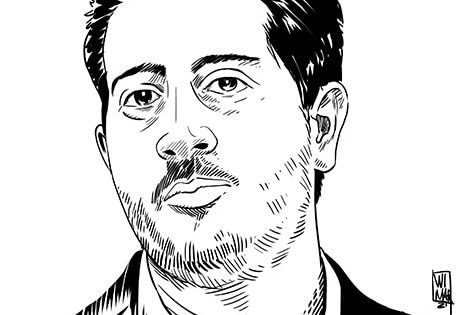RSF speaks to the journalist, who was freed after seven years and four months in prison.
(RSF/IFEX) – 21 July 2010 – Cafeteria of the Hotel Welcome, where the Spanish government is lodging the 11 Cubans who arrived in Spain on 14 July 2010. Seven of them are journalists, one of whom is Ricardo González Alfonso, who has been the Reporters Without Borders Cuba correspondent since 1998. He was arrested along with 74 other Cuban dissidents during the notorious “Black Spring” of March 2003 and was sentenced to 20 years in prison. The Spanish section of Reporters Without Borders went to greet him on his arrival at Madrid’s Barajas airport and, because of the enormous international interest, organised a news conference for him and the other journalists on 17 July.
In the following interview, he talks about his impressions since his release and his plans for the future:
What were your initial feelings on leaving prison?
There have been various feelings. The first is one of being physically in Madrid and mentally still in Cuba. In conversations, I find myself saying “here” and I am referring to Cuba. There was a more intimate and personal feeling, the one I had when I woke up next to my wife for the first time in seven years and four months. In prison, there were conjugal visits ever five months, then every three months and finally every two months, but they were three hour visits, and you missed waking up beside your wife. But there is a detail that is worth recalling. When I was on the plane flying to Spain, I saw a knife for the first time in a long while. A metal knife. Something very simple but forbidden inside prison. It surprised me. It almost frightened me. Another detail, the emotion you feel facing your first plate of hot food in seven years. It is a jumble of little things that may give an idea of the confusion I feel at this moment, and the need to adapt psychologically to the new circumstances.
How did you experience your release, from the moment you received the news until you left Cuba?
Everything began with a rumour, which I heard in the national prison hospital, where I was being treated for a foot infection. A fellow inmate, a reliable person I trusted, told me that he had heard on the radio (in the Combinado del Este building where he was) that they were going to free 45 prisoners. That was the first news. A little later, in the same hospital, I met another colleague, Julio César Gálvez (another journalist, who was also released). He told me he had heard something similar but he still did not have any details. When I got back to my cell, I asked for the newspaper, “Granma”, and there I saw that the news was confirmed. It spoke of releases but did not give the names of the chosen detainees.
Later, at around 6 pm on the same day, 8 July, I got a call from Cardinal Jaime Ortega, the archbishop of Havana, telling me that my name was on the list of prisoners who were going to be released and flown to Spain, if I was willing. I said that going to Spain could be interesting. When I met my wife Alida, she was thinking of emigrating to the United States. But I was not contemplating emigrating. So we decided that we would separate when her exit permit arrived (which in Cuba is issued by the interior ministry). But, as the years went by, we became closer and more in love with each other, and Alida’s exit permit did not arrive. Finally, a few days after I was arrested, Alida’s one-way exit permit finally arrived, presumably to get her to abandon me. But she refused to abandon me. She rejected the permit and decided to stay with me. It was obviously the kind of decision that creates a strong bond between two people, stronger than the initial commitment to each other.
(. . .)


